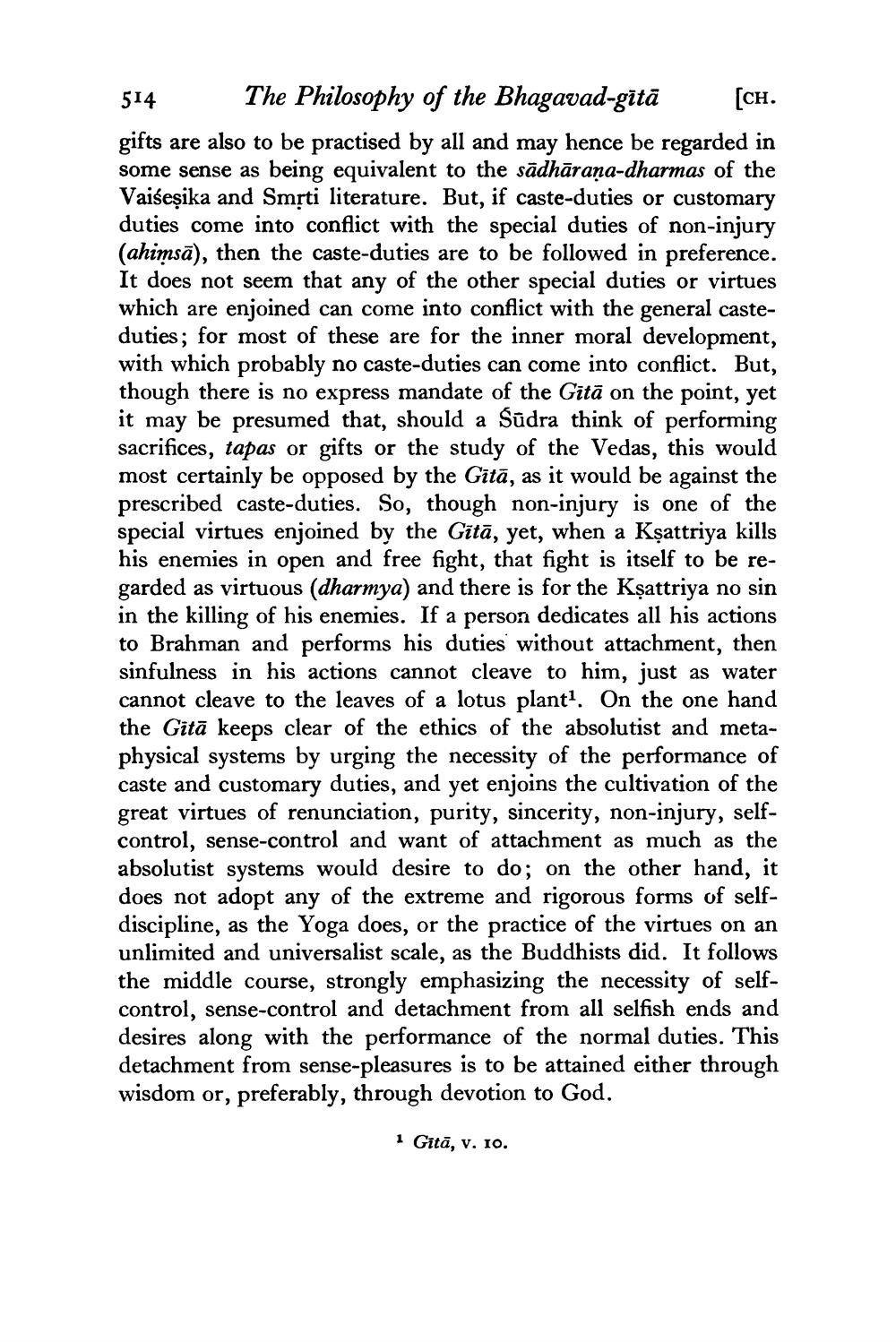________________
514 The Philosophy of the Bhagavad-gitā [CH. gifts are also to be practised by all and may hence be regarded in some sense as being equivalent to the sādhārana-dharmas of the Vaiseșika and Smrti literature. But, if caste-duties or customary duties come into conflict with the special duties of non-injury (ahimsā), then the caste-duties are to be followed in preference. It does not seem that any of the other special duties or virtues which are enjoined can come into conflict with the general casteduties; for most of these are for the inner moral development, with which probably no caste-duties can come into conflict. But. though there is no express mandate of the Gītā on the point, yet it may be presumed that, should a Sūdra think of performing sacrifices, tapas or gifts or the study of the Vedas, this would most certainly be opposed by the Gītā, as it would be against the prescribed caste-duties. So, though non-injury is one of the special virtues enjoined by the Gitā, yet, when a Kşattriya kills his enemies in open and free fight, that fight is itself to be regarded as virtuous (dharmya) and there is for the Kșattriya no sin in the killing of his enemies. If a person dedicates all his actions to Brahman and performs his duties without attachment, then sinfulness in his actions cannot cleave to him, just as water cannot cleave to the leaves of a lotus plant?. On the one hand the Gitā keeps clear of the ethics of the absolutist and metaphysical systems by urging the necessity of the performance of caste and customary duties, and yet enjoins the cultivation of the great virtues of renunciation, purity, sincerity, non-injury, selfcontrol, sense-control and want of attachment as much as the absolutist systems would desire to do; on the other hand, it does not adopt any of the extreme and rigorous forms of selfdiscipline, as the Yoga does, or the practice of the virtues on an unlimited and universalist scale, as the Buddhists did. It follows the middle course, strongly emphasizing the necessity of selfcontrol, sense-control and detachment from all selfish ends and desires along with the performance of the normal duties. This detachment from sense-pleasures is to be attained either through wisdom or, preferably, through devotion to God.
1 Gitā, v. 10.




